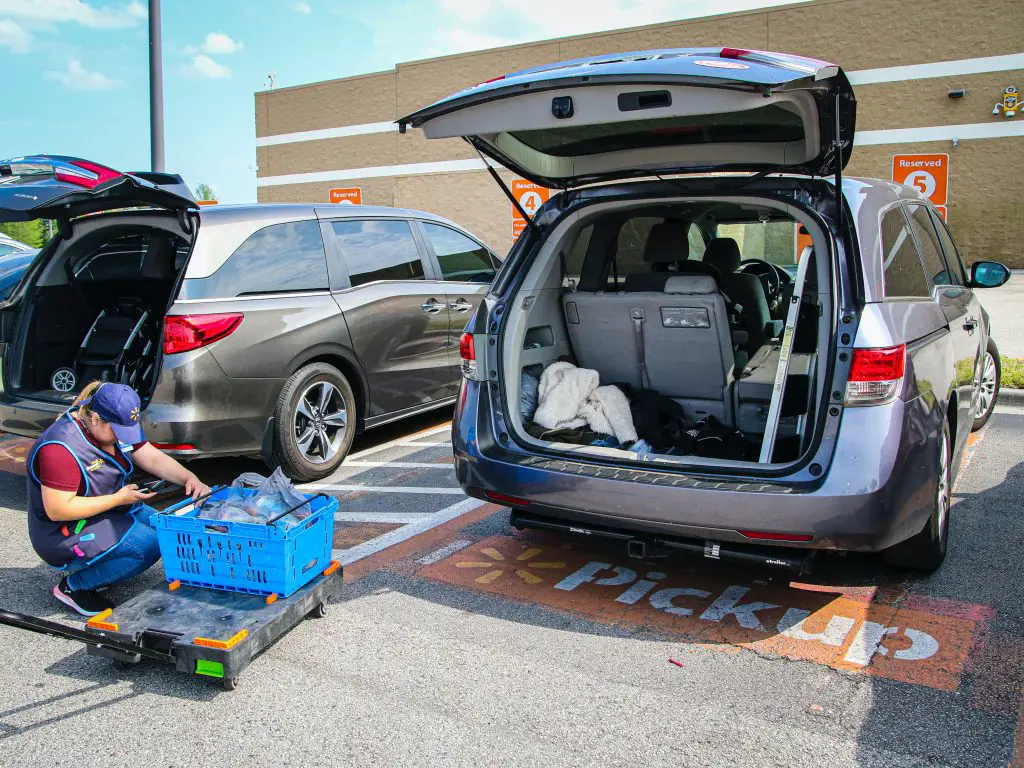Disclosure: this post contains affiliate links, which means I may receive a commission if you click a link and purchase something at no extra cost to you. Please check out our policies page for more details.
A lot of people are turned off to live for cheap because it sounds like it will be really uncomfortable. Or that it will be too hard.

But sometimes it’s just necessary! Your income is low, you have a mound of debt, or something else is holding you down and causing you to really look at your finances.
There are so many ways to live for cheap that don’t have to do with eating poorly, living uncomfortably, or doing without.
Let’s talk through how possible it is for everyone, and have it work for you!
Table of Contents
How to live for cheap with housing
Cancel cable
Cable is NOT cheap. Throw in the fact that many people don’t watch all of the channels, and you’ve got a big monthly bill with little return.
With so many different options out there today, it’s tough to justify the cost of cable.
There are streaming services (some of which let you watch live TV) and TV antennas that plug right into your family TV.
Many of the streaming services offer a free trial period, so it’s easy to test the waters to see which would work best for you. And since the TV antenna is a one-time fee to buy the antenna (with no monthly fees!), that’s a no-brainer to live for cheap.
Become a minimalist
Being a minimalist not only reduces the clutter in your house, it also goes hand-in-hand with living frugally.
Your wardrobe, for example. Instead of buying whatever you think looks good when you’re out, aim for a few staple pieces in your closet and accessorize them differently to switch things up.
Also, when you’re thinking of buying something new, give yourself a day or two to think about it, and even longer if it’s a larger purchase. Chances are, you’ll talk yourself out of it before your decision time is here.
And speaking of reducing clutter: a great way to make extra cash is to sell things around the house that you’re not using! Websites like Depop, eBay, Facebook Marketplace, RealReal, Mercari, and Poshmark are great starting points to sell your clothes. Apps like OfferUp and LetGo are also great.
Cancel your subscriptions
Ah, subscriptions.
When you sign up for them, they sound like a great idea. You get excited about them!
The issue with subscription services is the monthly fee, as opposed to a one-time bulk fee, makes it look more affordable.
But with a $10 subscription here and a $25 subscription there, these subscription services can add up without even realizing it!
Surround yourself with like-minded people

Peer influence can play such a huge factor in behavior! Especially when you add in comparing your life to those around you.
Instead of surrounding yourself with people who don’t mind living in debt to take lavish trips or trying to keep up with the Joneses, try to surround yourself with people who have their financial act together.
Surrounding yourself with people who know what they’re doing with finances help give you the inspiration to get (and keep!) your own financial act together.
Cut down on electricity use
We are so guilty of leaving lights on in our house. Especially in my toddler’s room, when I leave the room but don’t want to shut off the light on her, and she follows me 30 seconds later. That light stays on all the time.
If you’re bad at turning off lights like we are, a good motion detector light switch is what you need to cut your electricity costs down. Leaving the lights on adds up over time!
We also try hard to not run the AC unless it’s necessary (and at night). We have fans throughout the house that take significantly less power to run than the AC.
And I have even more tips to cut down on your electric bill in this post!
Take shorter showers
Shorter showers not only save in water but also the energy it takes to heat up that water. It isn’t a huge cost savings: at most, it can save about $150/year. But the savings are there!
How to live for cheap with food
Use cash-back apps
If you’re not already using cash-back apps when you’re shopping, you need to jump on it!
There are so many options out there, but my favorites are Fetch, Rakuten, and Ibotta. My favorite way to use Fetch and Ibotta is through their apps, and you can scan your receipts to get cash-back or rewards points. I love using Rakuten’s Chrome extension since it automatically pops up when you visit a site with the cash-back opportunities.
It’s not something that will get you rich quickly, but every little bit of money back you can get is worth the extra bit of effort.
Have a meal plan and list
One of the biggest things we did to cut down our grocery bill was to meal plan and work from a list when shopping.
Something that has been really helpful at our house is to create a master meal list.
That makes it easy to pick your meals for the week and build your grocery list. Bonus points for compiling your master list with meals under $5!
Shopping with a list (and not deviating from it) helps you stay on budget and keep to your frugal lifestyle.
Use curbside, if available

One positive thing that has come from this crazy pandemic has been the use of curbside.
We’ve been trying to stay out of stores during the height of the pandemic, so we have been taking advantage of curbside grocery pick-up. We had no idea what kind of savings we would see from using that over shopping in the store!
If you’re like most people, it’s super easy to pick up things that look good while you’re cruising the grocery aisles. It certainly is for us.
Using curbside has saved us a ton of money because we haven’t been able to peruse the aisles for what looks good. We make a grocery list, purchase our items online, and pick them up outside the store. Easy!
How to live for cheap with your finances
Try a no-spend challenge
Have you ever tried a no-spend challenge?
It’s not a literal no-spend challenge, where you can’t spend anything during the challenge.
The idea behind a no-spend challenge is to completely cut out any extra spending. So whatever’s not budgeted for and/or isn’t a necessity, you don’t buy.
You keep this up for as long as your no-spend challenge lasts. A popular time frame is a weekend or a week, but there are tons of variations of the no-spend challenge that can save you big money.
Get on a budget
Getting on a budget is a no-brainer when you’re on the hunt to live cheaply and save money.
When we were living life without a budget, it felt like our money was flying out the window before we even knew what was happening.
Once we found the right budgeting tools and household budget percentages, it actually felt like we got a raise!
Giving every dollar of your income a name not only ensures you get your bills paid on time, but that you have a strong grasp on your finances.
Pay off your debt
Speaking of having a grasp on your finances!
Putting together a plan and paying off your debt stops your money from flying out of the window by cutting all of the interest you’re paying on your loans.
When we were in the process of paying off debt, we were seeing close to $1,000 a month leaving our bank account for debt payments. And with that, tons of money in interest alone.
While it’s tough to pay off debt quickly, it sets you up to live for cheap by not only keeping those monthly payments but also avoiding those large chunks of interest you’re paying these loan companies.
Try the frugal lifestyle
When you want to live as cheaply as possible, the frugal lifestyle is the only way to go.
And it doesn’t always mean that you just sit at home and have no fun.
There are so many clever ways to live a frugal lifestyle while having fun and not sacrificing.
Take, for example, trying to keep your dates frugal for a little while. I have a fun list of tons of date ideas to save you money and still have a blast!
How to live cheaply with entertainment
Yes! It’s totally possible to live cheaply and have fun. I think many people think the two can’t go hand-in-hand, but I promise they can!
When we were getting out of debt (and even after!), we had to find creative ways to have some cheap fun. Yes, it was tough sometimes, but it was fun to think through fun things to do together.
If you’re looking for something to spark your creativity, check out our list of 100 fun things to do that barely cost anything.
How to live cheaply with cutting disposables
Cloth towels instead of paper towels
We switched to using cloth towels a while back. Paper towels can really add up over time! Especially for something that you just throw away anyway.
You may be asking, “do you use cloth towels for everything? Even to clean up food mess?”.
If there’s a chance that gross food will get stuck in the fibers of the cloth towel, we keep some paper towels on hand to clean that up. But since we use cloth towels for the majority of our paper towel needs, it has cut down on how much we spend on paper towels significantly.
Cloth diapers

If you have any little ones in the house with diapers, then you know how much disposable diapers can add up.
According to a study done at moneycrashers.com, the average cost of diapers for the first three years is about $2,160. That doesn’t even include the cost of accessories, like wipes (about $360 over 3 years) and a diaper disposal system with bags like the Diaper Genie (about $300 over 3 years).
For cloth diapers, the cost is more up-front and totally depends on what style of cloth diaper you choose. On the same post on Money Crashers, the cheaper option of prefolds might cost about $255 for their lifetime use. If you go for a pricier option, it gets closer to $1,000.
There are a few accessories that could add to the cost, like a diaper sprayer ($50) or a pail ($50-100).
If we’re just looking at the cost of diapers and using averages, cloth diapers can save you about $1,500.
In-home water filters
Do you always have bottled water in your shopping cart when you go grocery shopping?
According to habitsofwaste.org, the average American uses 167 bottles of water per year. With an average cost of $1.50/bottle, that would cost around $250/year.
Depending on the type of water filtration you want, the cost can be anywhere between $20 and $1,000. The higher-priced systems are the types that require installation, while the lower-priced systems are those portable containers like Brita, that go in the fridge.
So if you go with the cheapest option, you’re coming out ahead after just a month!
After a lot of research, we decided to install a reverse osmosis system and fill up glass containers that go in the fridge for delicious, cold water. And we go through a lot of water, so this definitely saved us money!
How to live cheaply with travel
Search within the optimal time window
To get the best deal with your air travel, try to book sometime between 2 and 8 months ahead for international flights and 1 to 3 months ahead for domestic flights.
Even better if you have flexible dates and can search using calendar search!
To check out even more tips, take a look at our post on tips to save on your air travel.
Save money on hotels by searching last minute deals
If you’re willing to take a bit of a gamble with your hotel arrangements, then it could save you quite a bit of money to find last-minute deals.
Websites like Hotel Tonight offer rates for dirt cheap so they can sell off the unused rooms. It’s a great way to find a cheap hotel room quickly.
If you’re looking for even more tips to save on your next hotel stay, check out our post here.
Check out peer-to-peer car rental instead of renting at the airport
Renting a car at the airport has some pretty huge mark-ups that come with it. You’re not only paying for the car rental but the convenience of picking it up straight from the airport.
If you’re able to take public transportation from the airport, it might be beneficial to use a peer-to-peer car rental service like Turo instead of renting at the airport.
Or, if you won’t be needing to use a car very much, it would likely be cheaper to use public transportation for the little traveling you need to do while away.
Travel off-season
If your dates are flexible, you could end up saving hundreds, or even thousands, by traveling off-season!
I like to do a quick search for the place I’m traveling to, to see their local peak and off-season times. You’ll have to dig a little because off-season could mean that the area has more inclement weather or undesirable conditions. You’ll have to weigh the pros and cons at that point.
But if you don’t mind and are flexible, this is an excellent way to save a ton of money on your travel.
That’s how to live for cheap!
Do you have any ways that you get by for cheaper? Which of the categories mentioned in this post help you and your family the most?
I’d love to hear from you in the comments!

